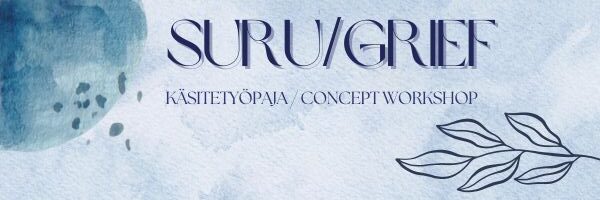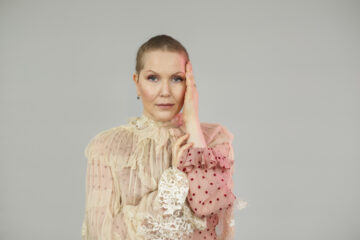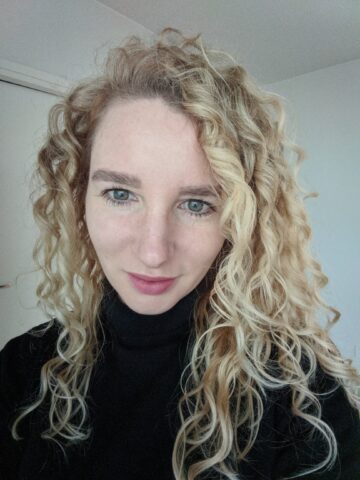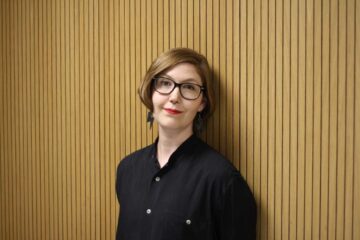Workshop 11.12. GRIEF

December 11, 16-18
Arcanum, room A229 (Loisto) / Zoom
This workshop explores the concept of grief from intersecting interdisciplinary perspectives, bringing together perspectives from life writing studies, narrative studies, queer studies, affect studies, and health humanities. It considers grief as a diverse affective and relational experience that has both a public and a private dimension and a complex temporality.
Program:
16.00 Opening words by Maarit Leskelä-Kärki
16.05-17.05 Papers
Astrid Joutseno/Swan:
Tracing the Grief of the Dying in Life Writing
“In this paper I will present my working definition for the grief of the dying. I argue that it is present in life writing by and about those ill with metastatic cancer, even though grief is not always explicitly addressed. I draw examples from digital and literary life writing, where grief punctures linear narratives, offering the possibility of constructing and telling lives (and deaths) differently.”
Avril Tynan
The Garden as a Space for Grieving in Art and Literature
“In this paper, I explore how cultural representations of the private garden are entangled with stories of grief in productive and creative ways to demonstrate ongoing attachments and relationships with the dead. Building on the turn in grief and death studies towards a “continuing bonds” model, I argue that grief is enmeshed in the spaces and places of the past, present and future, in relations between self and others, and in the social performance of private and public expectations. The garden is thus an ideal location in which to think about grief alongside perpetual return, persistence and multiplicity as an activity of ongoing and future-oriented interaction with the deceased.
In a range of cultural sources, including Hugo Simberg’s The Garden of Death (Kuoleman puutarha, 1896), Frances Hodgson Burnett’s The Secret Garden (1911), Tan Twang Eng’s The Garden of Evening Mists (2012), and Mélissa Da Costa’s Les Lendemains (2020) [The Days After], gardens and gardening feature alongside symbols and storylines of death and grief. In these works, the garden becomes a site for the construction and reconstruction of relationships between the living and the dead. Gardens, therefore, do not provide closure so much as open up avenues of communication and consolation to intertwine the living and the dead, the past, present and future, and different places, spaces, and environments. In this paper, I show how grief, without any definitive endpoint, shapes and takes shape in the garden. In argue that there is an optimism to be found in the garden as a cultural site of grieving that does not signal detachment from the dead but employs loss as a productive and creative force for future-oriented growth and change.”
Varpu Alasuutari
Queer Grief: A Public and Private Feeling
“Queer grief has been explored in queer studies as a driving force for queer activism, alongside anger and other negative affects resulting from living in a heteronormative and cisnormative world. Thus, grief has political importance in queer activism as a public feeling. However, as deeply relational human beings, queer people also encounter grief as an inevitable part of our personal lives: we are affected by the losses that we encounter, and we mourn the deaths of those near and dear to us, whether they have political and public importance or not. In this presentation, I explore queer grief as a diverse affective experience and as both a public and a private feeling, based on international research on queer activism and my earlier work on death and loss as part of queer and trans personal lives. I argue that queer grief does not limit itself to the public and political domain but comes to matter as an inseparable part of queer personal lives as well.”
17.05-18 Discussion
Meet our speakers:

Astrid Joutseno/Swan is a researcher in the Finnish Research Council project Counter-Narratives of Cancer” (University of Turku, 2023-2027) and a visiting scholar at the Oxford Centre for Life-Writing, (University of Oxford 2024-2025). In 2023-2024 she was Fellow in the Arts at the Helsinki Collegium of Advanced Studies. Swan is an award-winning songwriter who has released seven albums internationally. In 2019 she published a Finnish-language memoir Viimeinen kirjani (Nemo) and in 2024 she published a novel, Noitarakastaja (S&S). In her postdoctoral research Joutseno/Swan investigates grief as a cultural affect and particularly the grief of those living with cancer and/or dying.

Avril Tynan is a Research Council of Finland Fellow (2023‒27) at the University of Turku and editor of Storyworlds: A Journal of Narrative Studies. She has previously held research positions at the Institute for Advanced Studies in the Humanities in Essen, Germany and the Turku Institute for Advanced Studies, and is currently partner in the EU-funded #ENDOs project. Her research takes a critical perspective on the role and representation of illness and recovery, ageing and death in contemporary literature. She has published widely on the ethics and aesthetics of illness and disability, dementia, trauma and old age in francophone, anglophone and other literatures in edited collections and journals such as Journal of Literary and Cultural Disability Studies, Modern Language Review, Narrative Works, and SubStance.

Dr. Varpu Alasuutari is a postdoctoral researcher in Gender Studies at the University of Turku. Alasuutari’s research interests include a variety of negative affects in queer and trans lives. Her dissertation, Death at the End of the Rainbow: Rethinking Queer Kinship, Rituals of Remembrance and the Finnish Culture of Death (2020), explored death, grief and loss experienced by LGBTQ people living in Finland. She has also studied the affective history of queer activism as a part of the research project Affective Activism: Sites of Queer and Trans World-Making at Tampere University (funded by the Research Council of Finland, PI Tuula Juvonen). Currently, Alasuutari is starting a new research project, funded by the Kone Foundation, titled Queer(ing) Loneliness in the Nordic Region.
